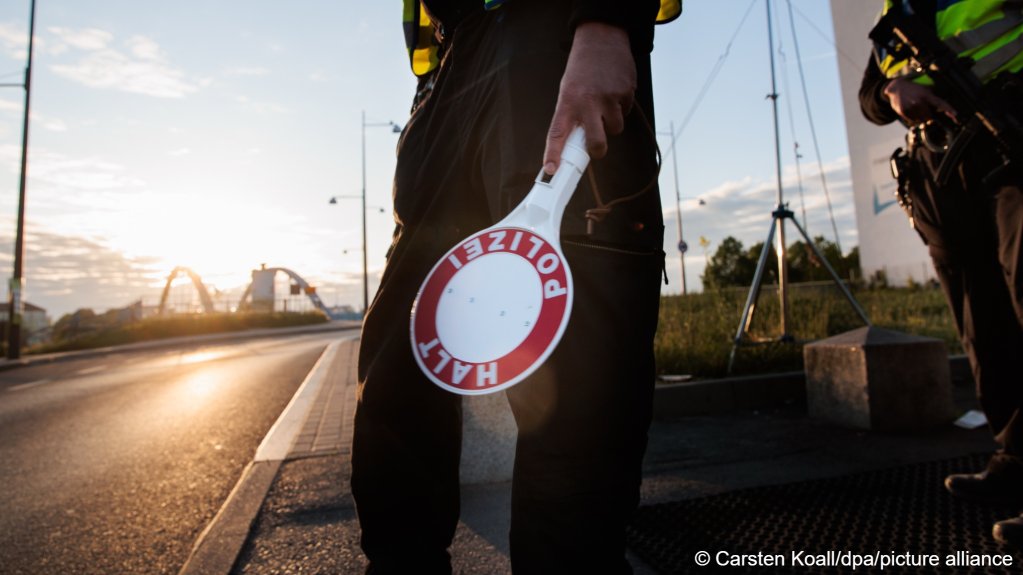Police have conducted multiple raids in Germany and Belgium, targeting a suspected international smuggling network. Both countries' new governments are pushing for stricter migration policies.
German and Belgian investigators have jointly dismantled a suspected human smuggling ring allegedly responsible for the illegal entry of nearly 300 migrants. Special police units arrested a total of seven suspects in both countries on Tuesday (May 13) and carried out searches of residences, according to a joint statement by the Traunstein public prosecutor’s office and the Federal Police in Freilassing, in the country's southern state of Bavaria. Six of the seven arrests took place in Belgium.
In Germany, one suspect was arrested and properties were searched in the Bavarian district of Ansbach and in Leipzig, Saxony. The international smuggling network is believed to have illegally transported around 300 people in ordinary vehicles into Germany and other EU countries between 2022 and 2024. The smuggling routes primarily passed through Poland and Austria into Germany.
Investigators were led to the network after stopping a suspicious driver during a border check near the German-Austrian border in Bavaria in September. Analyzing the man’s mobile phone data raised suspicions of human smuggling.
Further investigations then uncovered a broader network. The suspects arrested in Belgium are expected to be extradited to Germany; extradition has already been requested. In addition to the Belgian authorities, the EU agencies Europol and Eurojust were involved in the investigation.

Both the new German and Belgian governments have vowed to introduce more hardline migration policies, with stricter border controls and major cuts to asylum programs.
Earlier this year, on March 16, a major crackdown led to 19 arrests in Marseille, France, as part of a joint investigation by French and Spanish authorities. The operation included searches of 17 properties and the seizure of a boat, vehicles, and 20,000 euros in cash.
The dismantled network is suspected of smuggling over 1,700 migrants in nearly 500 operations since November 2022, primarily moving people from Catalonia, Spain, to Marseille, France. Similar smuggling routes have also been identified from Germany and Belgium to the UK.
Read AlsoEuropol dismantles major smuggling ring
Belgian's 'strictest migration policy yet'
Belgium's new federal government is led by the Flemish nationalist New Flemish Alliance (N-VA). The coalition has introduced what Prime Minister Bart De Wever calls the country's "strictest migration policy yet," aiming for "more controlled migration." Key measures include ending emergency housing, limiting family reunification, prioritizing subsidiary protection, halting resettlement, and increasing asylum deterrence efforts such as phone data access.
The government also plans to align Belgium’s asylum policy more closely with neighboring countries to reduce so-called "secondary migration." In 2024, asylum applications reached a 10-year high at nearly 40,000, with half the applicants previously registered elsewhere in Europe. A controversial move to exclude such individuals from reception facilities was later overturned by the Council of State for being unlawful.
Despite a record 36,077 reception places in 2024, the system remains overwhelmed, with thousands of single men facing months-long waits and resorting to homelessness. Local reception initiatives have shrunk by 30 percent since 2021. Meanwhile, Wallonia plans to cut accommodation for Ukrainian refugees by 75 percent by October 2025.
The Flemish Refugee Action group criticized the government's approach as divisive and short-sighted. Its Legal Helpdesk initiative, which recently hit 10,000 cases, underscores the ongoing strain on Belgium’s asylum infrastructure.
Read AlsoBelgium: New government to implement 'strictest migration policy ever'
With AFP and dpa
